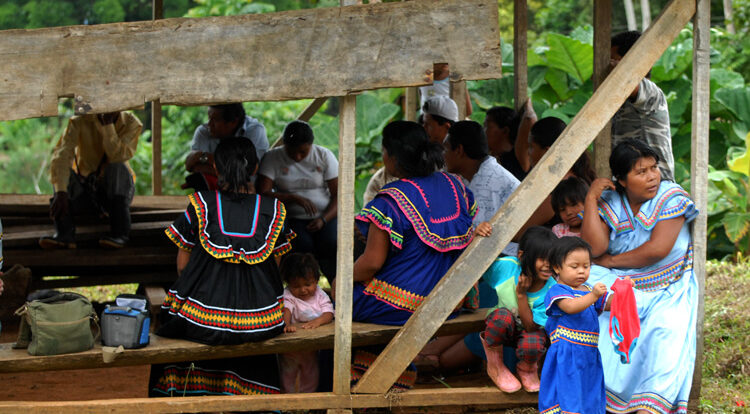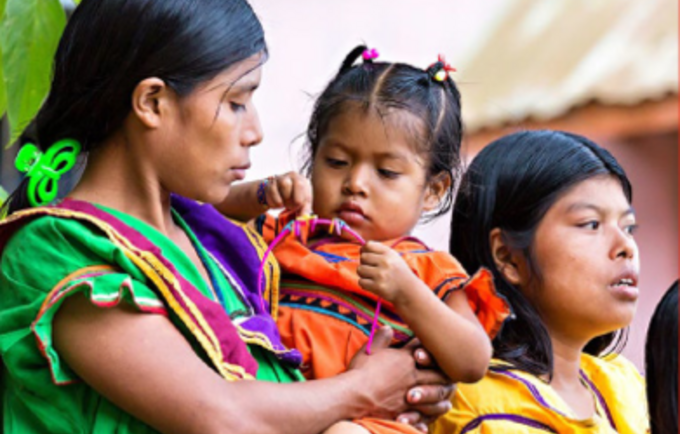Status of the Indigenous People of Costa Rica

Photo: UCR
The indigenous peoples of Costa Rica are descendants of the original inhabitants of the Americas. They constitute a small percentage of the total population, approximately 6%. They are concentrated in rural areas and are mostly farmers, hunters or fishermen.
According to the United Nations (UN), there are more than 104,000 indigenous people living in Costa Rica, belonging to 8 peoples, of which 36,000 live in 24 territories. Bribris, Cabécares, Malekus, Chorotegas, Huetares, Ngäbes, Bruncas and Térrabas.
Costa Rica is home to approximately 50 different indigenous cultures and languages. Most speak Spanish as a second language and live in poverty with low levels of education.

Status of Indigenous People
The indigenous peoples of Costa Rica have faced many challenges throughout their history. From being slaves, to now living in poverty, they have had to overcome many obstacles. They have been abused and exploited by those who colonized them. They were enslaved for centuries and then forced into the labor market when slavery was abolished. This has led to a high percentage of poverty among this group today.
Currently, the indigenous people of Costa Rica are being expelled from their lands. They are forced to move to the cities and towns to find work. This is a problem because they do not have the same opportunities there as in rural areas.
In fact, more than 60% of the Talamanca-Bribri territory is in the hands of non-indigenous people, more than 97% of the Cabécar territory is in the hands of large capitalists. They had only two scenarios: either they started to recover their lands or they waited for the State to listen to them.
In other words, indigenous communities in Costa Rica have been subjected to acts of violence and threats, even against their lives. This is due to the expansion of agricultural plantations and other economic activities that the indigenous people are not willing to give up.
More Commitments to Fight for Their Rights
However, this population has been increasing in recent years and this is causing a stir among the government. That is, the government has taken many steps in order to ensure that the rights of these people are protected. These include creating a law for them, demanding more funding for their education and providing them with more public services such as medical care.
It is estimated that the percentage of indigenous adolescent women who are mothers is more than double the national total (10.2% compared to 4.3%), while the percentage of indigenous girls in marital unions (12.7% compared to 4.3%). On the other hand, only 67% of the indigenous population has access to electricity, but 99% of the entire population does. Meanwhile, only 40% of the indigenous population has access to drinking water, while national coverage is 90%. With respect to education, only 13% of indigenous people finish school and 41% of the indigenous population is lagging behind.
The rights of Costa Rica’s indigenous peoples have been violated for centuries. They are marginalized by the government and society, which has led them to be unsatisfied with their basic needs such as health, education and housing.
In Summary
- Costa Rica’s indigenous peoples constitute a small percentage of the total population, approximately 6%.
- According to the United Nations, there are more than 104,000 indigenous people living in Costa Rica, belonging to 8 peoples, of which 36,000 live in 24 territories. Bribris, Cabécares, Malekus, Chorotegas, Huetares, Ngäbes, Bruncas and Térrabas.
- Seventy percent of indigenous households have unsatisfied basic needs in areas such as health, education and housing, while the national percentage is only 24%.
Author
Zelda Walters for Sensorial Sunsets
Bibliography
Learn more
Navigate articles




